Corporate governance
Corporate governance in the Netherlands is a success story, even though this success story has a rather grim beginning. In 2001 the energy company Enron went bankrupt in the United States following an accounting scandal of unprecedented proportions. Executives of Enron – until 2001 regarded as a boring, safe investment – hid a loss of more than one billion euros. In the meantime, they sold their own shares. Enron went bankrupt, and 21,000 employees lost their jobs. The executives went to jail, and the fraud finally led to the implosion of Enron’s auditor Andersen.
The arrival of legislationTo prevent bad governance in the future or at least to focus on good governance, various initiatives arose worldwide. In the United States legislation was introduced: the Sarbanes-Oxley Act. This Act requires companies to have robust audit committees and internal controls and makes executives liable for the accuracy of reports. The Act also provides for higher penalties for white-collar crime.
The Netherlands chose a different route but, like the United States, it acted fast. As early as 1997, Jaap Peters had made 40 recommendations for good governance, in the ‘Peters Committee’ as it was called. This early focus on good governance is easily explained. The ‘polder model’ of consultative bodies is traditionally reflected in the stakeholder model and the two-tier model: the ‘executive board’ (also known as ‘management board’) determines the strategy, the supervisory board exercises supervision. The works council and other bodies give advice. In fact, Peters advised how this structure (also called the ‘Rhineland model’) could be used in the best possible manner.
The Rhineland model
The Rhineland model is characteristic of the Dutch system (among others). This model focuses not only on the company and its shareholders but also on other stakeholders, such as employees, customers, suppliers and society. The management board and supervisory board are separated in a ‘two-tier board’, as it is called.
In countries like the United States the Anglo-Saxon model dominates, with a greater focus on profits and shareholders. Here, executives and supervisors sit together on a board of directors, the ‘one-tier board’, as it is called. Read more about the differences between the Rhineland model and the Anglo-Saxon model here.
Genesis of the Dutch Corporate Governance Code In the wake of the Enron accounting scandal, the Netherlands had its own major accounting scandal. At supermarket group Ahold, the figures were fiddled with. Unlike Enron, Ahold was to survive, but it was clear: even the stakeholder model was not immune to large-scale abuses. In March 2003 Hans Hoogervorst, then Minister of Finance, set up a Dutch corporate governance committee, headed by Morris Tabaksblat.
The celebrated top executive (and later supervisory director) succeeded in persuading the business world to agree to self-regulation through a code of conduct for companies and their executive directors. The Dutch Corporate Governance Code, which was published as early as December 2003, contains over 100 recommendations for good governance. Companies undertook to apply the Corporate Governance Code or to explain why they departed from it on certain points. In 2004 the Dutch Corporate Governance Code, known as the ‘Tabaksblat Code’ among executive directors, was enshrined in the law. The Corporate Governance Code Monitoring Committee was also established. It has been monitoring compliance with the Code ever since.
Under Tabaksblat's successors, Jean Frijns and Jaap van Manen, the Code was revised. Frijns broadened the support base for the Code by, among other things, involving investors in the Code. Under Van Manen, who came up with the Revised Corporate Governance Code in 2018, the concept of ‘culture within the company’ became important. In 2018 Pauline van der Meer Mohr was appointed Chair of the Corporate Governance Code Monitoring Committee. In Management Scope she explained that she did not want to introduce a major revision of the Code but did want to update it.
Important themes in the Dutch Corporate Governance Code
From day one, there was much debate about recommendations on remuneration and remuneration policies: would transparency perhaps have the effect of forcing up top salaries? Many companies now have a remuneration committee responsible for reviewing remuneration policies, and remuneration has come under increasing scrutiny at shareholders' meetings.
Long-term value creation was also an important theme. This should be the main objective when the long-term strategy is drawn up. In addition, executive directors are expected to formulate a vision on the level of their own remuneration and how this fits in with long-term value creation.
Culture within the company is also considered increasingly important. For example, executive directors and supervisory directors are expected to encourage openness and accountability. In brief: good governance without accounting scandals.

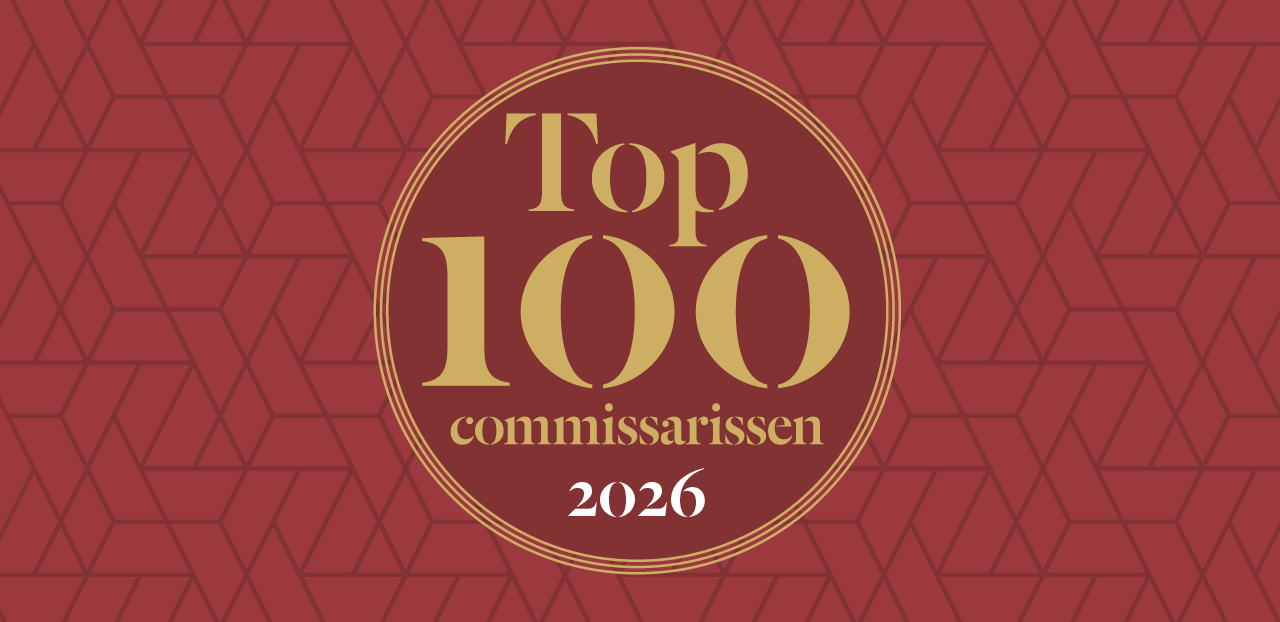
Top 100 Supervisory Board Members 2026: Diversity Is in the Details
As the most influential supervisory board member in the Netherlands for the fourth year in a row, Dick Boer himself thinks it is getting boring. While last year we were still wondering if the list was the prelude to real change, for the first time since 2019, the top three consists entirely of men ‘of a certain age’. We find diversity between the lines, because at second glance, the list is fortunately less homogeneous: the podium is not entirely white, and the percentage of women in our top 100 is once again above forty.
Read moreAccording to directors and supervisory board members, geopolitical uncertainty, AI, new legislation and regulations, as well as cybersecurity, will play a major role in 2026. Due to the significant risks these trends imply, they want to anticipate them, while also not giving in to trepidation. This is the outcome of our first survey among directors, supervisory board members, and governance professionals, on the most important corporate governance trends for 2026.
How do you get your first supervisory board position, why do you choose to become a supervisory board member, and how do you fulfill your role? Karen de Lathouder has been a supervisory board member at NS (Dutch Railways) since March and talks about her drive and approach. ‘I am always curious about the considerations. Or about the compromise. As a supervisory board, it is interesting to know what you miss out on as a result of that compromise. What did we not get?’
These are the corporate governance trends for 2026
According to directors and supervisory board members, geopolitical uncertainty, AI, new legislation and regulations, as well as cybersecurity, will play a major role in 2026. Due to the significant risks these trends imply, they want to anticipate them, while also not giving in to trepidation. This is the outcome of our first survey among directors, supervisory board members, and governance professionals, on the most important corporate governance trends for 2026.
Karen de Lathouder: ‘I bring parallel thinking, a kind of sidetrack’
How do you get your first supervisory board position, why do you choose to become a supervisory board member, and how do you fulfill your role? Karen de Lathouder has been a supervisory board member at NS (Dutch Railways) since March and talks about her drive and approach. ‘I am always curious about the considerations. Or about the compromise. As a supervisory board, it is interesting to know what you miss out on as a result of that compromise. What did we not get?’
Karl Guha, chairman of the supervisory board of ING and number two in the Management Scope Top 100 Supervisory Board Members, has over thirty years of experience in international banking. A conversation on risk-taking, (over)regulation, and the Dutch tendency to break ranks with Europe. ‘Shareholders are asking how the ING board can accept a permanent and avoidable loss in value, simply because of choosing the Netherlands as a business location. That is the dilemma we face. Do I have a solution? No. Does it bother me enormously? Absolutely. Am I worried about it? Yes.’
Top supervisory board member Jack de Kreij – number 10 in the Top 100 Supervisory Board Members 2026 – sees the supervisory board as a perpetual motion machine in which colleagues are constantly working together to find the connections between current and complex issues, so they can act on them with ongoing adjustment. ‘It is all about the collective and your contribution to the greater good.’
He may have a wealth of experience as member of both management and supervisory boards, but Henk Rottinghuis does not like routine. On the contrary, says the 80th-ranked member of the Top 100 Supervisory Board Members 2026: ‘I am curious about tomorrow, about the things I do not know yet. If I leave a meeting with the same opinion as when I entered, it was not a good meeting.’
Karl Guha: ‘Zero risk means zero reward’
Karl Guha, chairman of the supervisory board of ING and number two in the Management Scope Top 100 Supervisory Board Members, has over thirty years of experience in international banking. A conversation on risk-taking, (over)regulation, and the Dutch tendency to break ranks with Europe. ‘Shareholders are asking how the ING board can accept a permanent and avoidable loss in value, simply because of choosing the Netherlands as a business location. That is the dilemma we face. Do I have a solution? No. Does it bother me enormously? Absolutely. Am I worried about it? Yes.’
Jack de Kreij: ‘Optimize, evaluate, and re-adjust’
Top supervisory board member Jack de Kreij – number 10 in the Top 100 Supervisory Board Members 2026 – sees the supervisory board as a perpetual motion machine in which colleagues are constantly working together to find the connections between current and complex issues, so they can act on them with ongoing adjustment. ‘It is all about the collective and your contribution to the greater good.’
Henk Rottinghuis: ‘Curiosity is more important than knowledge’
He may have a wealth of experience as member of both management and supervisory boards, but Henk Rottinghuis does not like routine. On the contrary, says the 80th-ranked member of the Top 100 Supervisory Board Members 2026: ‘I am curious about tomorrow, about the things I do not know yet. If I leave a meeting with the same opinion as when I entered, it was not a good meeting.’

Petri Hofsté: ‘They conceive, we approve – that separation is too rigid’
Petri Hofsté learned to supervise in practice in the mid-1990s, without the extensive regulations, information protocols, codes, and supervisory visions that are now inevitable. As a seasoned member of multiple supervisory boards, she has her own unique perspective. ‘Public visibility has limits, just like diversity on a board of directors or supervisory board, and strategy is a shared responsibility of the executive board and the supervisory board.’
Read moreMost read

Kuldip Singh: ‘Ask Yourself How It Can Be Done Ten Times Faster and Better’
Kuldip Singh is No. 1 on the Next50-list of non-executive directors. An open conversation about backbone, the importance of diversity and the power of digital transformations with an upcoming non-executive director who does not want to let go of the executive side.
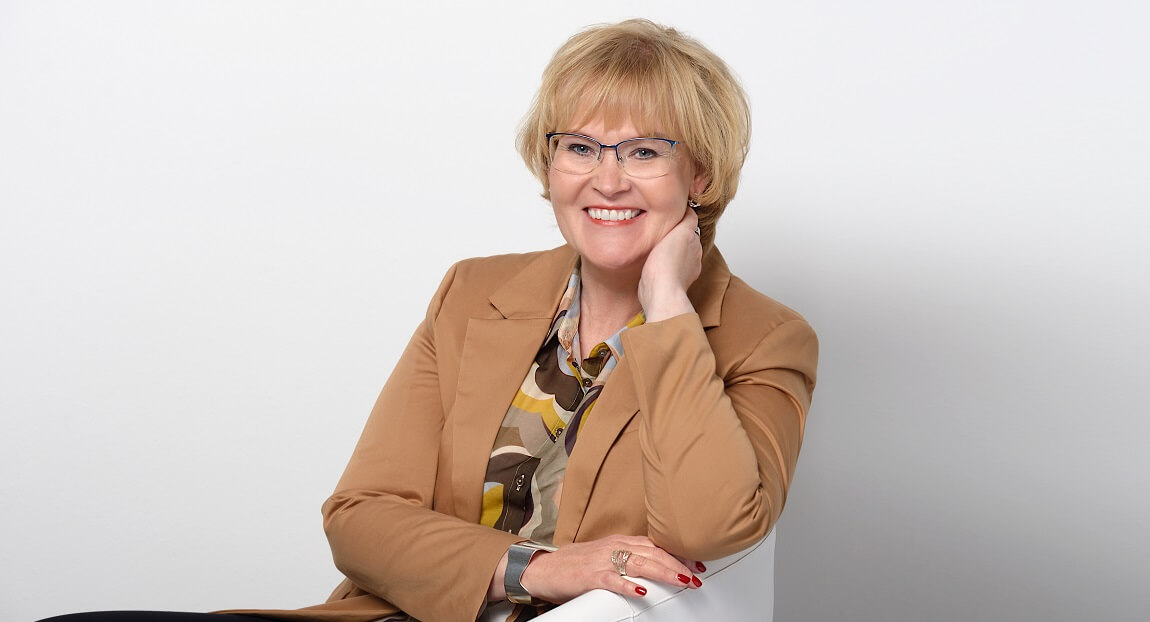
Essimari Kairisto: ‘Productively Sparring Supervisory Director Makes All The Difference’
Essimari Kairisto is the highest-ranking woman and highest-ranking foreigner on the list of emerging top supervisory directors, the Management Scope Next50 2024. She entered the list out of nowhere. It is therefore a good time for a closer acquaintance with this TenneT and Fugro supervisory director.
Barbara Bier: ‘We need to correct this omission’
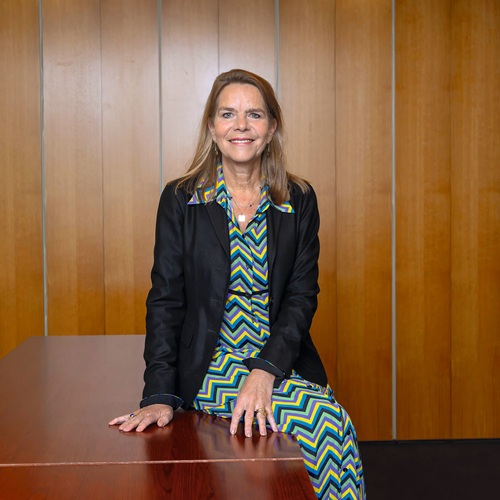

Board agenda 2035: ‘Contributing ideas instead of monitoring’

Elections 2025: ‘A stable economic policy will help us move forward’
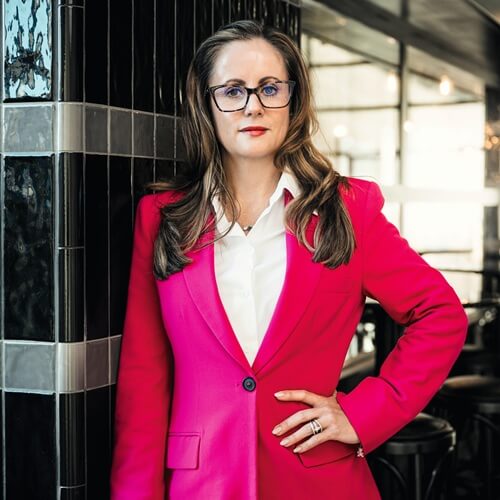
Corné Greyling: ‘The cosec navigates an increasingly complex landscape’

The evolution of the annual evaluation
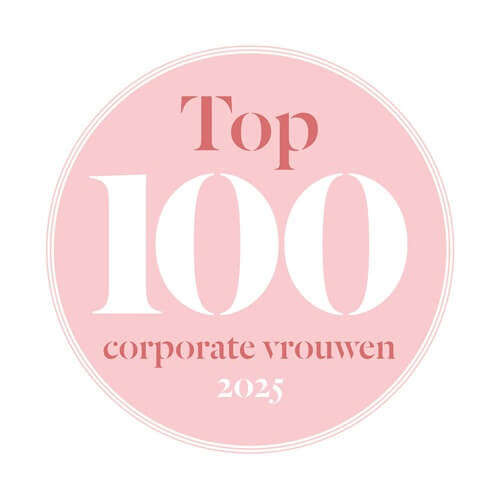
Analysis Top-100 Corporate Vrouwen 2025: Spectacular shifts

The code: Back to basics or room for public debate?
Sandra Berendsen took a break from the boardroom for a while. Her dairy farm called, and she found herself working with milking robots in the middle of the night. Now, she is back as a supervisory board member. Berendsen ranks first in this year’s Next50 Supervisory Board Members, Management Scope’s annual list of the next generation of top members of supervisory boards. She is a supervisory board member with a keen eye for the human aspect and has diverse interests: 'If you make a decision that benefits one party, it has direct consequences for the other. If you overlook that, you have a problem—no matter how sound your decision is.'
Offering added value to society is the connecting factor in the portfolio of Fleur Rieter, new at number seven in the Management Scope Next50 2025. As a member of both executive and supervisory boards, she is active in the world of pensions, health insurance and housing. ‘In all these sectors, it concerns vulnerable groups. You have to have a thorough understanding of the issues at stake in society and what your purpose as an organization is.’ In view of rapid changes and the increasing external stresses on organizations, a good dynamic between members of the executive and supervisory board is increasingly important.
Sandra Berendsen: ‘Not Just Attention in Governance for Those Who Have the Loudest Voice’
Sandra Berendsen took a break from the boardroom for a while. Her dairy farm called, and she found herself working with milking robots in the middle of the night. Now, she is back as a supervisory board member. Berendsen ranks first in this year’s Next50 Supervisory Board Members, Management Scope’s annual list of the next generation of top members of supervisory boards. She is a supervisory board member with a keen eye for the human aspect and has diverse interests: 'If you make a decision that benefits one party, it has direct consequences for the other. If you overlook that, you have a problem—no matter how sound your decision is.'
Fleur Rieter: 'Board and supervisory board members really have to understand each other well.’
Offering added value to society is the connecting factor in the portfolio of Fleur Rieter, new at number seven in the Management Scope Next50 2025. As a member of both executive and supervisory boards, she is active in the world of pensions, health insurance and housing. ‘In all these sectors, it concerns vulnerable groups. You have to have a thorough understanding of the issues at stake in society and what your purpose as an organization is.’ In view of rapid changes and the increasing external stresses on organizations, a good dynamic between members of the executive and supervisory board is increasingly important.

Lynelle Bagwandeen (Prosus): ‘The company secretary is a facilitator, not a wet blanket'

Else Bos: ‘Creating space for real dialogue is at the basis of the advisory role’
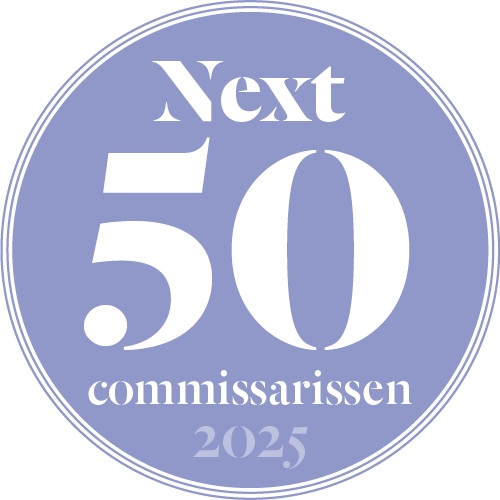
Next50 2025: A little less

Company secretaries are the guardians of behavioural risks

Peter Agnefjäll (Ahold Delhaize): ‘We need to navigate between interests’



.jpg)
.jpg)
.jpg)
.jpg)

.jpg)

.jpg)





